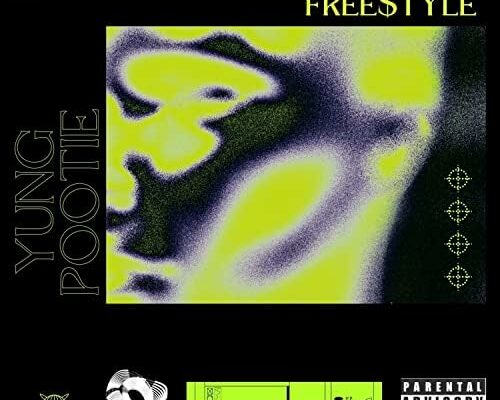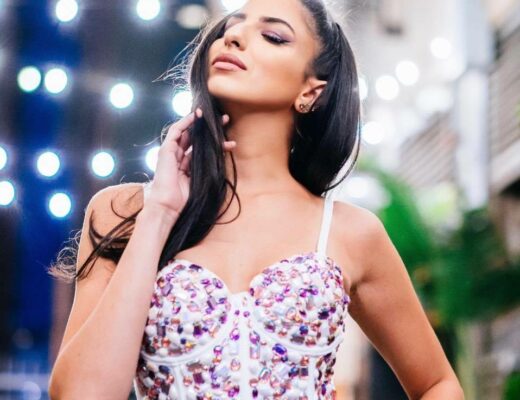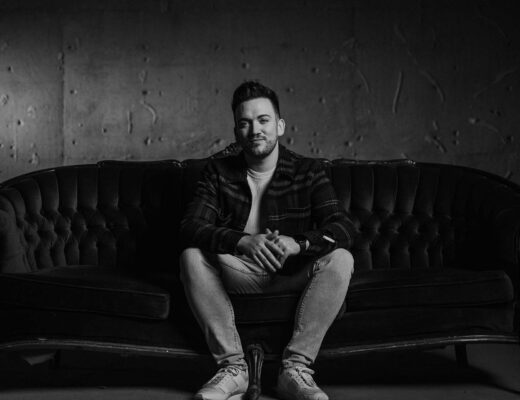Embark on a journey with Roman Gastelum, a Los Angeles-based artist breaking barriers in the realms of jazz and hip-hop fusion. With his recent debut record, “EQuilibrium,” Roman has crafted a ground breaking blend of genres that pushes artistic boundaries. Join us in this exclusive interview as we explore the depths of Roman’s musical influences, the creative process behind “EQuilibrium,” and the unique perspective he brings to the intersection of jazz and hip-hop.
“EQuilibrium” is a genre-defying masterpiece, seamlessly blending hip-hop and jazz. What inspired you to create such a unique fusion, and how did you approach the challenge of balancing these diverse musical elements?
I have been heavily into both jazz and hip hop since I was a younger teen and have always seen similarities between the two styles to the point where they are pretty much interchangeable. They are both very cerebral styles of music that both seem to activate the same part of my brain. I remember always being fascinated by the intersection between the two styles and always wanting to explain to others how modern hip hop that followed in the path of Eric B & Rakim is essentially an offshoot of Charlie Parker bebop. This led to years of me going down the rabbit hole between both genres, which eventually culminated into me wanting to create a balance between the two that I’ve always wanted to hear that I felt I had never quite heard before. I had noticed that a lot of jazz infused hip hop or hip hop infused jazz tends to be lopsided in the sense that it leans more in one direction than the other: hip hop that samples jazz, soul etc., or jazz that is performed over hip hop grooves and has a slow harmonic rhythm. My goal was to create as close to a perfect balance between boom bap and bop that I possibly could by balancing elements from the best of both worlds that, for some reason, never seem to be combined (see question #3). Overall, I wanted the superficial listener to have the impression that they are (mostly) listening to Jazz sampled instrumental boom bap beats; but for the more discerning listener, I wanted a much more intricate, fresh and engaging composition to unfold before their ears.
As the bassist, vocalist, and lyricist for Jigsaw Falling, how does your role in this eclectic progressive rock project differ from your solo work on “EQuilibrium”?
My role differed between “EQuilibrium” and “Jigsaw Falling” with the way that the music was composed. “Jigsaw Falling” was more geared toward collaboration, where all three of us were composing and arranging the instrumental aspect of music in the studio at the same time, and we would all have to come to agreement on the final outcome for every song. This was very time consuming and difficult at times, but this process definitely created some interesting music. The vocals and lyrics are probably the only similarity between the creative processes of “EQuilibrium” and “Jigsaw Falling”. I pretty much had free reign over creating the vocal melodies and lyrics with “Jigsaw Falling”, which would typically all be ironed out during the recording sessions. The major difference with “EQuilibrium” is that as leader, I had full creative control over the entire project, whether it be composition, arrangement, production or any decision-making regarding the band.
Your musical influences span a wide range of genres. How do you navigate the diverse landscape of jazz, hip-hop, funk, soul, and more to create a cohesive and innovative sound in your compositions?
Taking many diverse influences and fusing them into a cohesive sound is definitely a challenge, especially because I wanted to approach it differently. Hip hop is already comprised of jazz, funk and soul, so composing music like this is naturally going to have inflections of funk and soul, both in the melodies, harmonies and rhythms. Because these styles are prerequisite for classic hip hop, the music tended to write itself depending on the feelings I wanted to express. The main challenge for me was that I wanted to combine certain elements from different genres that aren’t typically combined in order to strive for something fresh, yet still familiar. The first step in striving for the sound I wanted to achieve was to take the soundscapes of hip hop – most of which are sampled (in the classic sense) – and reproduce them with live instruments. This meant that I had to create melodies that gave the same avant-garde, disjointed, almost atonal sense of counterpoint that hip hop sampling conveys, and put them over boom bap grooves. The second step was that I wanted to put rich post-bop harmonies and jazz forms to these hip hop soundscapes. This way, the composition becomes a vehicle for the soloist to create an interesting lyrical solo as if they were the rapper soloing over the track. The compositions ultimately become reversible in the sense that they can either be performed as boom bap beats, or as jazz standards.
“EQuilibrium” features a talented lineup of musicians from the Los Angeles scene. Can you share how collaboration played a role in shaping the album, and what each musician brought to the table?
Collaboration played a huge role in putting this record together. I chose every musician based on knowing that they would fulfill my vision of the project – each one of them has a unique voice that I knew would bring it all to life. Drums are probably the most important part of the overall sound on a record for something that is boom bap oriented, so I had none other than Jason Pruhko play drums. He is a highly versatile drummer that has an in-depth knowledge of hip hop grooves and gets the overall aesthetic, so I knew I would be secure with getting a solid balance between hip hop and jazz in the end. I went with Andy Waddell on guitar because he has strong modern sensibilities and works with a lot of great sounds. He also has a certain intensity to his playing that took the record to another level. We had a blast getting creative and recording in the studio together. Scott Tibbs was on keys and synths throughout the entire record. He was the oldest on the project so the experience and insight he brought to the table was key. His approach added great depth and balance to the compositions. Brandon Wilkins played tenor saxophone and Aaron Janik played trumpet. They make a great duo, are incredibly efficient, and they both played some killer solos throughout. “EQuilibrium” would not have been a reality of course, without Brandon Wilkins, who was my right hand man throughout the entire record. If he didn’t offer to take on the project and my vision wasn’t mutually accepted, it might have been much longer before I would have gotten it off the ground. He recorded, mixed, and mastered the entire thing and worked closely with me co-producing throughout the entire process to make sure that everything was getting the attention that it deserved.
As a musician actively involved in the Los Angeles music scene, how has the city influenced your sound and creativity, especially in the context of the vibrant and diverse music community that exists there?
Given the massive metropolis that is Los Angeles, I don’t think I would have the opportunity and potential to perform the wide array of styles that I have performed, or will be able to perform in the future if I didn’t live here. I have played anything from rock, pop, alternative, r&b, jazz and country. There is something here for everyone musically and you don’t need to live in the middle of LA to get it. It all depends on what kind of scene you’re looking for. For example, if you live in LA City and don’t like what’s going on there at the moment, you have the rest of LA County. If that’s not enough, you can always head to Orange County, Ventura, or even San Bernardino Counties, which each have something completely different to offer. There are probably only a few other locations in America that offer such a wide and frequent selection of musical styles, so it made sense for me to move to a place where I knew I would have a lot of room to expand musically because I have always enjoyed playing a wide number of styles since a younger age. The longer I have the ability to be surrounded by an eclectic musical environment, it only encourages me to grow as an artist by taking on new experiences and challenges.
Your debut album marks a significant milestone in your musical journey. How do you see yourself evolving as an artist, and what aspirations do you have for the future of your music career?
Now that I have released my debut full length solo record, I feel like a massive weight has been lifted off of me and I can now pursue other things that I’ve been wanting to pursue. It’s hard to say at this point if I will be creating more records in this specific style of jazz and hip hop, or if I will move onto something else in terms of composing new material. I do feel that I have expressed most of what I wanted to express on EQuilibrium, so if this is the only one, I am content with that, but that doesn’t necessarily mean that I don’t have more to express within the same idiom in the future; a lot of it depends on demand. What I do know is that at this point in my life I am definitely ready to expand as both a bassist and a composer. I have mostly been playing within the jazz realm over the past 4 or 5 years while neglecting the live performance of other styles, and am craving performing within many genres of music on a regular basis, although of course I will continue playing jazz. Different musical genres fulfill different sides of me artistically, and being active in as many as possible makes life more interesting and usually creates more opportunities for me. One style of music that I haven’t gotten to play enough of in LA and am just as passionate about as any other, is real country music – honky tonk, outlaw and bluegrass – and I would like to expand in that realm. I would also like to play in more various rock and pop settings. All of the aforementioned typically lend to playing in front of larger audiences. Lets just say that if I don’t stay in Los Angeles, somewhere like Nashville could be written in my future.
Find out more about Roman here




No Comments